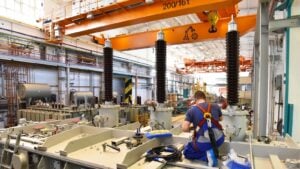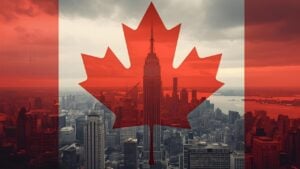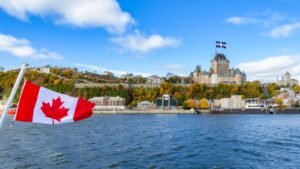Canada can be an energy superpower if it stops standing in its own way. That was the message from Enbridge CEO Greg Ebel in a Toronto speech on Thursday, where he urged policymakers to deliver faster decisions and clearer rules that would let private capital build long-lived projects.
“Markets build when governments set clear rules, credible timelines and consistent decisions,” Ebel told the Empire Club of Canada.
Ebel zeroed in on a federal moratorium that bars large crude oil tankers from stopping along the remote northern coast of British Columbia.
He said no company will champion a new line to tidewater as long as exports cannot sail from that corridor.
“No company would build a pipeline to nowhere,” he said, adding that approvals must move at a pace that matches competitors courting the same investment.
The tanker moratorium has been on the books since 2019 and prohibits ships carrying more than 12,500 metric tons of crude or other persistent oils from loading or unloading at ports in the designated area.
Any move to open a West Coast route would require revisiting that law or finding an alternative that satisfies environmental concerns and Indigenous rights while still allowing viable marine access.
His comments came a day after Alberta committed C$14 million for early regulatory work on a proposed pipeline to a northern B.C. port, a concept the province hopes private industry will eventually take over.
Ottawa and Alberta appear to be closing in on a framework to consider such a project, though the federal government has signaled that any fast-tracking would be linked to progress on the Pathways carbon capture initiative and broader emissions cuts from the oil and gas sector.
British Columbia’s premier has reiterated support for the tanker ban, underscoring the political hurdles ahead.
Enbridge is one of North America’s most system-critical energy companies, moving about 30% of the continent’s crude oil and nearly 20% of the natural gas consumed in the United States.
After closing a trio of utility acquisitions in 2024, it also operates the region’s largest natural-gas utility by volume.
How Canada calibrates its rules will shape where the company and its peers deploy billions in long-dated capital.
Policy hurdles at the center of a bigger competition
Ebel’s broad point was less about one project and more about Canada’s competitiveness at a time when allies want reliable supply and rivals are moving quickly.
He framed energy policy as economic and national security policy, urging Ottawa to provide durable signals that endure beyond election cycles so developers can commit to 30- and 40-year assets.
The call for speed comes as Alberta and the federal government debate how to pair new infrastructure with credible emissions reductions, a trade-off that will define whether a pipeline proponent steps forward.
Environmental advocates and coastal communities remain wary.
They argue the moratorium protects an ecologically sensitive region and that public money should not chase additional fossil fuel capacity.
Those objections, coupled with court and regulatory risks, have derailed past proposals and will likely shape the fate of any new bid to reach the Pacific.
Canada has the geology, workforce, capital markets, and proximity to customers.
What it needs, he said, is policy certainty and a decision to build. “Canada must build, or risk being left behind.”




















